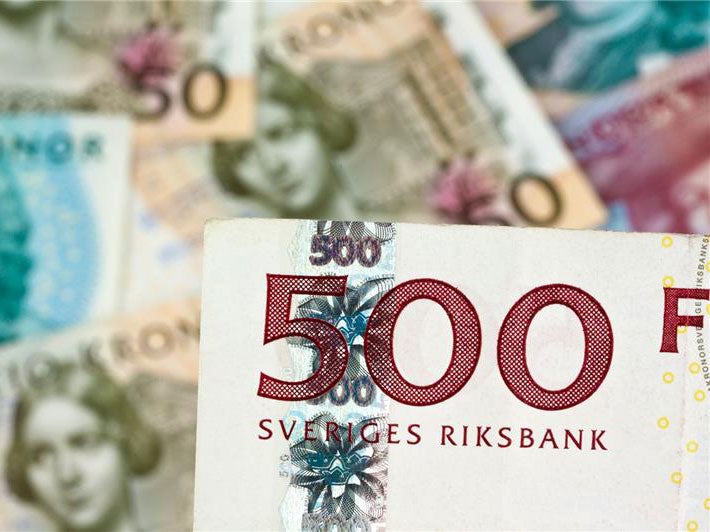Sweden 'fast becoming world’s first cashless society’
There is less than 80 billion Swedish crowns currently in circulation (around £6 billion)

Your support helps us to tell the story
From reproductive rights to climate change to Big Tech, The Independent is on the ground when the story is developing. Whether it's investigating the financials of Elon Musk's pro-Trump PAC or producing our latest documentary, 'The A Word', which shines a light on the American women fighting for reproductive rights, we know how important it is to parse out the facts from the messaging.
At such a critical moment in US history, we need reporters on the ground. Your donation allows us to keep sending journalists to speak to both sides of the story.
The Independent is trusted by Americans across the entire political spectrum. And unlike many other quality news outlets, we choose not to lock Americans out of our reporting and analysis with paywalls. We believe quality journalism should be available to everyone, paid for by those who can afford it.
Your support makes all the difference.Sweden is fast becoming the world’s first cashless society due to the growing use of a new mobile payment system.
According to a new study from Stockholm’s KTH Royal Institute of Technology, there is currently less than 80 billion Swedish crowns in circulation (around £6 billion), which is a sharp decline from the six years ago, when there was SEK106 billion in circulation.
Niklas Arvidsson, an industrial and management researcher at the institution and the author of the study, said that while cash is an important means of payment in other countries, but that Sweden’s use of cash is small, “and it is decreasing rapidly”.
The move towards a cashless society has come from the prevalent use of a mobile payment system called Swish, which is a direct payment app that is used for transactions between individuals in real-time.
The app was created through the collaboration of Bankgiro and Sweden’s national bank, Riksbanken, and follows a strong technology trend in financial services in Sweden, where some banks already have completely digitised branches that do not accept cash.
Arvidsson said Swedish consumers have a “tradition of welcoming electronic payment services,” and added that of the SEK 80 billion in cash circulation, he believes “only somewhere between 40 and 60 per cent is actually in regular circulation”. The rest is understood to be held in deposit boxes and people’s homes, or is being used in the underground economy.
The study also found that a crackdown on money laundering and organised terror has helped to boost the move towards a cashless society.
Arvidsson warned there are parts of the population that will need to be helped along the way if Sweden is to become completely cashless however, which includes people not used to computers or mobile phones, many of which are older people living in rural areas, while the homeless and undocumented immigrants will be greatly impacted and reliant on Government aid.
Join our commenting forum
Join thought-provoking conversations, follow other Independent readers and see their replies
Comments